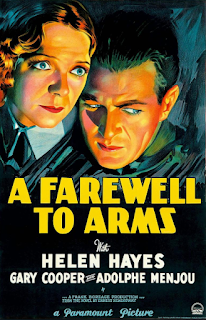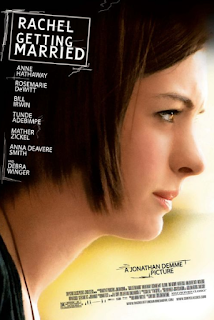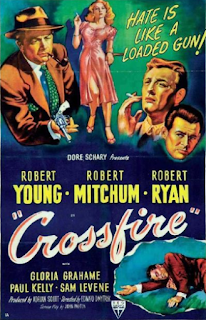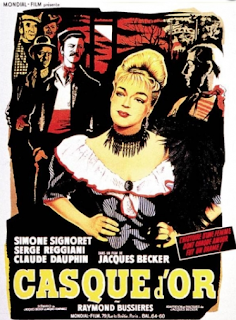A Farewell to Arms (1932)
Ernest Hemingway was one of the greatest American writers of all time. He had a gift for vivid descriptions, a talent for conveying complex and layered thoughts with a clear, simple language and a profound ability to observe human behaviors and feelings. That said, adapting his work to the screen is incredibly difficult: Hemingway's novels are full of personal, intimate reflections that carry the meaning of the whole story. In a movie, it's difficult to translate those inner thoughts in a way that does not appear didactic or excessively expository, but, on the other hand, removing them means getting rid of the thematic complexity of the author's work. Unfortunately, this is the case of A Farewell to Arms, Frank Borzage's adaptation of the 1929 novel. Hemingway himself hated the movie, and it's not hard to see why: the novel, a masterpiece, was a powerful, thoughtful meditation on values such as honor, bravery and love and a devastating depiction of a world torn apart by a senseless war; the film instead reduces the story to the star-crossed love between the two leading characters. It's far from being a bad movie and there are remarkable elements to be found in it, but it lacks the depth of feeling of the novel, and its power to haunt you.
The film follows Frederic Henry (Gary Cooper), an American serving as an Italian ambulance driver during World War I. Looking for shelter during a bombing raid, he meets British Red Cross nurse Catherine Barkley (Helen Hayes). He is a somewhat foolish young man who drinks a little too much and does not have serious intentions towards her; she is a virgin, and the army regulation prevents her from having romantic laisons with soldiers. As they get to know each other, they embark on an illicit love affair that lasts throughout the war in spite of them being reunited and separated multiple times.
The one truly great thing about this adaptation of A Farewell to Arms is Charles Lang's mesmerizing, astonishing cinematography that deservedly earned him an Academy Award. Through Lang's shadowy images, with just a dim light illuminating the actor's faces, the scenes between Cooper and Hayes achieve an incredible, vibrant intimacy, as if we were witnessing something we are not supposed to be seeing - the actual development of the relationship between Frederic and Catherine is not especially original, but Lang grants their scenes such a palatable atmosphere of genuine closeness that they are surprisingly compelling, even moving to watch. And what Lang manages to accomplish in the war scenes is absolutely spellbinding, capturing striking images of devastation and despair and giving them a raw brutality that has nothing to envy to contemporary movies - kudos to sound engineer Franklin Hansen as well for enhancing the realism and vividness of the scenes depicting the defeat of Caporetto (even though they are considerably shortened if compared to the book).
Writing-wise, the central relationship between the two characters works, even though it never achieves the legendary status it seems to strive for as suggested by Milan Roder's beautiful, sweeping score. Honestly, it never could: in the novel, the love story between Frederic and Catherine is not so special because of its nature per se, it's special because of what it causes - it's thanks to his love for Catherine that Frederic starts to second-guess the meaning of the war, to realize that heroism can sometimes be stupid and to think that perhaps it's better to be a disertor but live rather than be a honorable soldier and die. By heavily excising the growing disillusionement of Frederic, the crushing loss of his ideals of glory but also his gradual realization of the power of love, the film rids the love story of a lot of its power - it's still charming at first and moving at the end, but not exactly groundbreaking. The actors' performances are still more than satisfactory and bring the needed heart to the proceeding. Even though he's playing a watered-down version of Frederic, Gary Cooper gives a surprisingly good performance and one that is unusually emotional for him: he does not wholly succeed in the part and there are a few shaky moments here and there, but it's a stretch from his typically stoic (and sometimes dull) performances and manages to be rather touching by the end. Helen Hayes elevates the potentially thankless role of Catherine thanks to her radiance and expressiveness, bringing dignity and heartfelt sincerity to it. The rest of the cast is uniformly quite solid with Adolph Menjou being the standout as Frederic's friend Rinaldi, who hinders the relationship both in an attempt to protect Frederic but also out of jealousy as he initially set his eyes on Catherine himself. It's a surprisingly rich portrayal and Menjou nails his character's contradictions while showing his genuine remorse for his actions.
Ultimately, A Farewell to Arms is a perfectly respectable picture but a rather disappointing adaptation if you take the source novel into consideration. It's a captivating affair elevated by its outstanding technique and nice performances, but whereas the book leaves a lasting impression in the reader's memory thanks to its thought-provoking deconstruction of traditional values, the movie engages on a level that is only emotional and not intellectual.
60/100




Haven't seen this, and it doesn't seem like something I'd like anyways.
RispondiEliminaIt’s not a must-see. It’s wonderfully shot and the Oscar for Cinematography is truly deserved, but it’s not especially remarkable as a whole.
EliminaI agree with you! Good chemistry and atmosphere but it doesn't quite capture the intensity and impact of the source material. It's pretty hard to imagine a perfect way of putting this novel to the silver screen though. I'd love to see someone take a shot though (David Mackenzie directing, perhaps, with Chris Pine, Florence Pugh in the lead roles?)
RispondiEliminaWe're in complete agreement here, both on the movie and also on the difficulty of adapting the novel to the silver screen (haven't seen the 1957 version yet though). Pine would be an amazing fit for the role of Henry and Pugh would be an excellent choice for Catherine as her own charisma and screen-presence could easily make up for the limitations of the character. Mackenzie could be a good choice for director, though Joe Wright (in Atonement mode, not Darkest Hour mode) could be great as well.
EliminaThis is a particular favorite of mine, with gorgeous cinematography, and Helen Hayes giving a beautiful performance.
EliminaMay I have your ratings and quick thoughts on Cooper, Hayes, and Menjou?
I'd agree about the cinematography, unfortunately the movie did not impress as much.
EliminaCooper - 3.5 (I'm not a huge fan of Gary Cooper and I think he has a very limited range, but I admire his work here for trying a different approach than usual. The role is far more limited if compared to the book, but Cooper gives a rather charming and endearing performance and shares a sweet chemistry with Hayes. He is also quite good at portraying his character's strain due to the war, even if the movie excised a lot from his character's arc. His final scenes are a bit of a mixed bag with a few awkward moments but for the most part he pulls them off and manages to be even quite moving)
Hayes - 3.5 (A luminous performance though she does not have a great character to begin with. Catherine is little more than an object of affection, though Hayes breathes life into the part thanks to her warm and tender turn. She can't overcome the paper-thin nature of the role, but she's genuinely charming at portraying her character's highs and very moving at portraying her character's lows. Also, she has a great chemistry with Cooper)
Menjou - 4 (Really liked his performance here. First off, I thought he gave a wonderfully scene-stealing and endearing supporting turn, but past that it's a very intriguing character. Menjou portrays Rinaldi's genuine affection towards Frederic but also his jealousy over his relationship with Catherine. He does a great job at portraying his character's conflicting emotions until his final scene in which I thought he was rather touching at portraying Rinaldi's remorse)
Just out of curiosity Giuseppe, to you have any interest in seeing "All the Money in the World" or "Roman J. Israel, Esq"? I wasn't sure if you wanted to complete the year or not, but I think regardless of the films themselves, both nominated performances are strong in their own way.
RispondiEliminaI’d like to see All the Money in the World, mostly for Plummer and Durais. I’ll probably do it rather soon. As for Roman J. Israel, Esq I have to admit I have little motivation to see the movie, not being a huge fan of Denzel Washington in general and seeing the general reception of the film.
EliminaSeen any new releases, Giuseppe? Specifically any American or English language films.
RispondiEliminaQuesto commento è stato eliminato dall'autore.
EliminaI've only seen Dogman, an Italian film by Matteo Garrone. I've just posted its review. I'm also seeing Love, Simon and (hopefully) Solo next week.
EliminaJust ignore that above, but my question still stands.
RispondiEliminaThanks for taking the time to share this interesting article here about the "A Farewell to Arms". I am impressed by the details which you have shared in this post. If anyone looking for the Latest Movie News Online, Visit movienewsnet.com
RispondiElimina